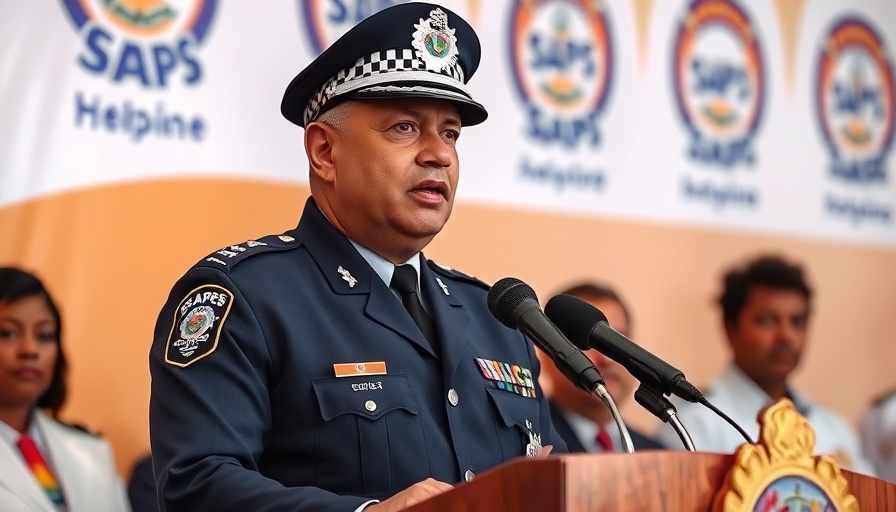
A Turbulent Chapter in South Africa's Policing: The Raid on Shadrack Sibiya
The ongoing saga surrounding South Africa's law enforcement agencies continues to unravel, particularly with the recent raid at the home of suspended Deputy National Police Commissioner Shadrack Sibiya. This incident, which occurred amid extensive testimony before an ad hoc committee charged with investigating corruption and political interference in the criminal justice system, illustrates the deep tensions within the South African Police Service (SAPS) and the growing scrutiny it faces.
National Police Commissioner General Fannie Masemola reported being informed about the raid during a break in the proceedings, clarifying that while officers sought electronic devices as part of the investigation, no immediate arrests were anticipated. The operation has stirred considerable controversy, with Sibiya claiming it is a targeted attempt to discredit him ahead of crucial hearings, including his anticipated appearance before both the Madlanga Commission and the Parliament’s ad hoc committee.
Investigating the Investigators: Corruption and Accountability in Law Enforcement
Amidst the allegations of corruption, the question of accountability looms large. As Masemola continued his testimony, he faced stark scrutiny regarding SAPS's vetting processes—a critical aspect given the allegations surrounding Sibiya related to corruption, money laundering, and interference in criminal proceedings. The integrity of law enforcement in South Africa is currently under the microscope, with critics demanding significant reforms. In a coalition government landscape marked by negotiation and power-sharing, achieving accountability poses a challenge.
Political Reactions and the Broader Implications for the 2024 Elections
This incident occurs against a backdrop of a politically fragmented environment in South Africa. With the 2024 general elections on the horizon, the outcomes of investigations such as this could significantly influence voter sentiment. Opposition parties, including the African National Congress (ANC), Democratic Alliance (DA), and Economic Freedom Fighters (EFF), are closely watching developments. Political realignment discussions are heating up, as citizens grapple with issues of voter turnout and electoral integrity amidst allegations of state capture and corruption in public service.
Understanding the Personal Impact: The Human Cost of Political Strife
Sibiya's account of the raid reveals insight into the personal toll that these high-stake investigations can take. He described the event as traumatic, especially for his family, who were confined during the search. The emotional weight of being under scrutiny in such a public and profound manner resonates beyond the individual—echoing the broader narrative of fear and distrust that many South African citizens feel towards institutions meant to protect them.
Looking Ahead: Reform and Service Delivery in a Crucial Era
The implications of the Sibiya raid extend beyond individual cases of alleged misconduct and touch on the critical need for reforms within the SAPS and broader governmental structures. As discussions about police reform, judicial independence, and anti-corruption measures gain traction, South Africa faces an urgent necessity to reconcile these systemic issues with a populace that demands effective service delivery and justice. The decisions made today pave the way for future generations, impacting everything from economic policy, land reform, to social grants.
The Road Forward: Community Engagement and Civil Society's Role
As the political landscape shifts, civil society and grassroots movements play an increasingly vital role in advocating for transparency and accountability. Engaging the populace in discussions around reform is essential to rebuild trust in public institutions. With issues ranging from gender-based violence to youth unemployment persisting, addressing these core societal challenges is intertwined with the restructuring of political frameworks and law enforcement.
In conclusion, the implications of the raid at Shadrack Sibiya’s home reach far beyond the personal ramifications for him and his family. It reflects a nation at a crossroads, requiring careful deliberation and decisive action as it strives towards a more equitable and just society. There’s no doubt—understanding the intricacies of these developments is crucial for citizens and professionals alike as they navigate the complexities of South Africa’s future.
 Add Row
Add Row  Add
Add 




Write A Comment